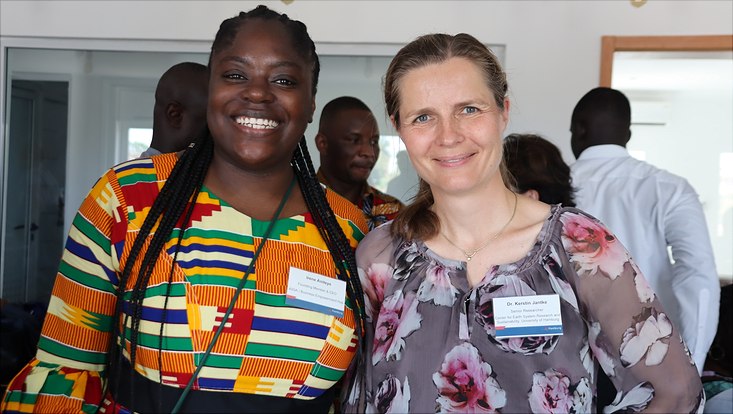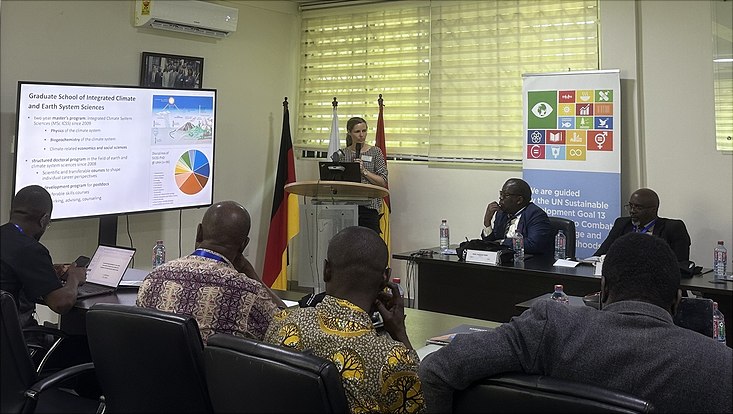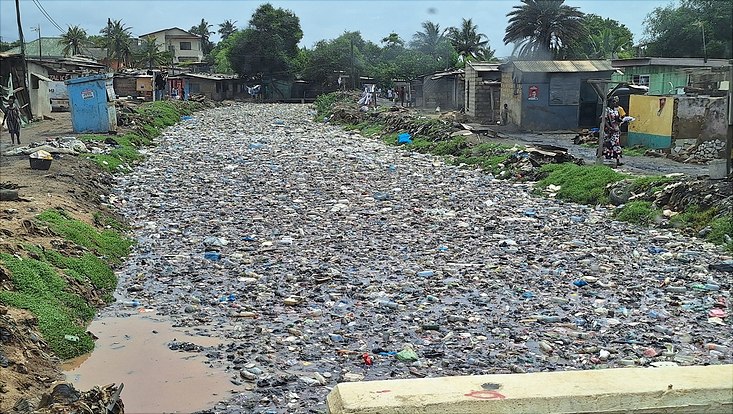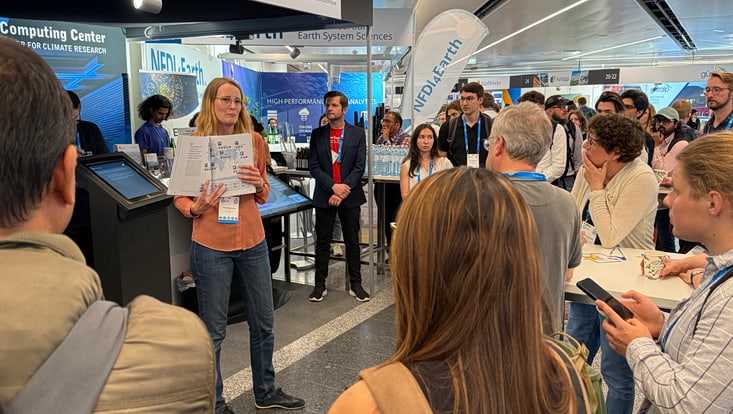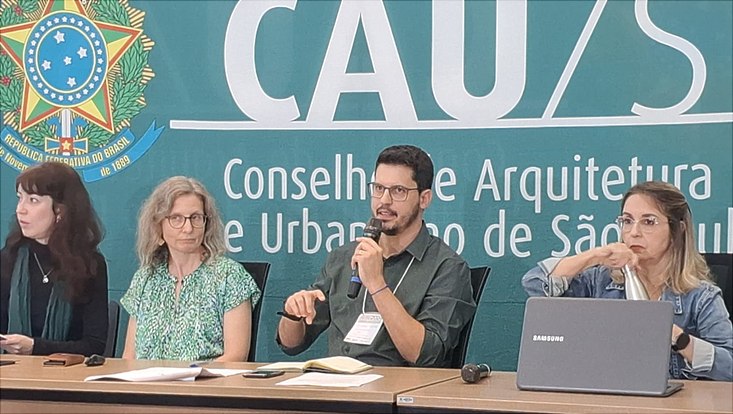and Society (CLICCS)
Delegation to GhanaCLICCS discusses climate research in Ghana
24 October 2024, by Stephanie Janssen
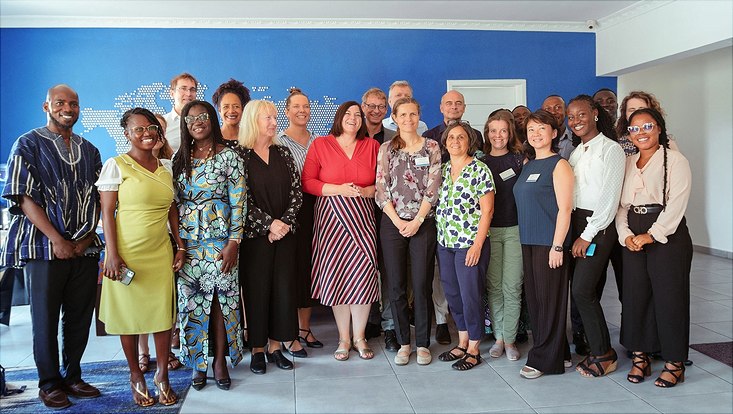
Photo: Daad
Environmental researcher Dr. Kerstin Jantke recently returned from a trip to Ghana as part of a German delegation that also included Katharina Fegebank, Hamburg’s Second Mayor and Senator for Science, and further representatives of the ministry for science, research, equal opportunities and districts, the university and other scientific institutions from Hamburg. During their time in Ghana, research collaborations were initiated and expanded – with regard to the climate, but also infectious-disease and democracy research, as well as teacher training.
In the following interview, CLICCS researcher Kerstin Jantke talks about the people of Ghana’s awareness of climate change, the consequences of a downpour, and why the delegation’s bus had to make an unscheduled stop.
What was the purpose of the trip?
Kerstin Jantke: One of the topics I’m researching is how agriculture can adapt to climate change. Naturally, the challenges vary considerably between climate zones. For example, at CLICCS we had previously looked into how a project in Namibia that provided regular meals for schoolchildren could help local smallholders cope with droughts. My colleagues also determined that harvests of the cowpea, a staple in Africa, could be doubled by adding a certain type of bacteria to the seed. In Ghana, I had the opportunity to present our research, exchange notes with colleagues from West Africa, and make new contacts. To this end, we visited WASCAL, the West African Science Service Centre on Climate Change and Adapted Land Use, in Accra and Kumasi.
How is climate change viewed in Ghana?
The people I met with in Accra, Kumasi and Cape Coast were very much aware of climate change. I not only spoke with other researchers and officials, but also with “civilians,” who can see and feel the effect of global warming on a daily basis. The majority of them are convinced that something has to be done about the climate crisis right away. I was impressed by their sense of urgency – also in comparison to those of us living in Germany – since many of them have other existential concerns to deal with, like poverty, environmental pollution, or food insecurity.
Could you see climate change impacts?
Yes, the soil was very dry everywhere you looked. According to climate projections, in some parts of Africa temperatures could rise at twice the global average, so that an increase of two degrees would translate to roughly four degrees there. That’s a substantial burden, not just for agriculture, but also for human health. At the same time, we experienced a night with extremely heavy rainfall in Accra. The next day, several homes were at risk of being flooded. The local populace tried to redirect the water out to sea. A nearby river was full of plastic litter that had been washed up by the rushing waters. Despite these challenges, the people I met in Ghana were very positive and welcoming.
The delegation you were part of also had a breakdown on the road. Can you tell us more?
For the journey to Cape Coast, we took a charter bus. Suddenly, the seat beside Katharina Fegebank started smoking and throwing off sparks. We stopped in the middle of nowhere and of course everyone had to get off right away. It turned out that there was a short-circuit in a cable. The driver acted quickly, removed the faulty cable, and opened all the windows and doors to air out the bus. The incident even garnered us an article in the Bildzeitung as well as the Hamburger Abendblatt.
Further information
Vice President Böhmann joins delegation to Ghana – Uni Hamburg News (German only)
https://www.uni-hamburg.de/newsroom/im-fokus/2024/1004-delegation-ghana.html
Delegation travels to Ghana to promote research on health, the climate and democracy (German only): Hamburgs Zweite Bürgermeisterin Fegebank ist nach Ghana gereist (ARD Mediathek)
Delegation members from the University of Hamburg and CLICCS:
Prof. Tilo Böhmann (Vice President of Research)
Prof. Telse Iwers (Vice Dean, Faculty of Education)
Prof. Marylyn Addo (UKE)
Prof. Thomas Großbölting (Faculty of Humanities)
Dr. María Manez Costa (Cluster of Excellence for climate research CLICCS, Climate Service Center GERICS)
Dr. Kerstin Jantke (Cluster of Excellence for climate research CLICCS)

